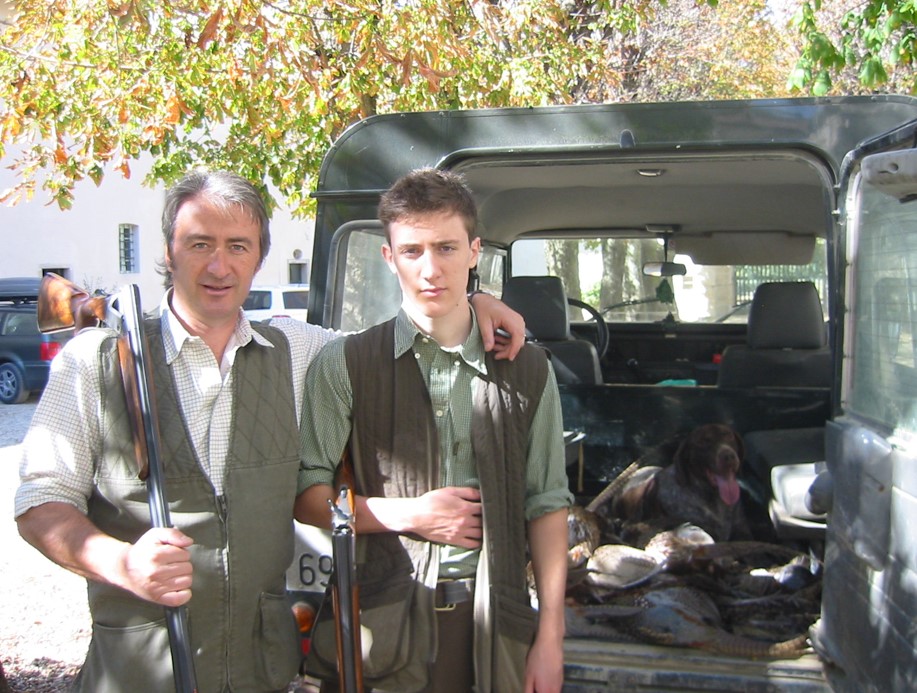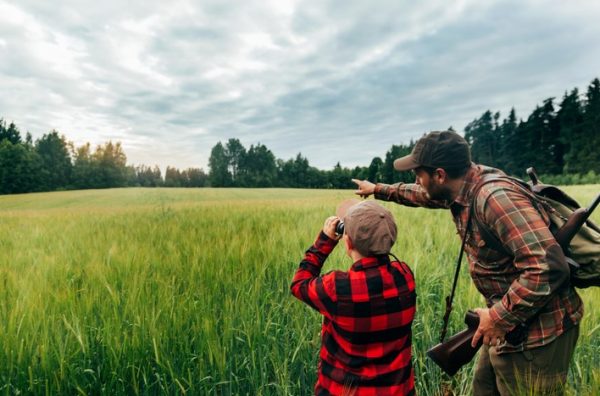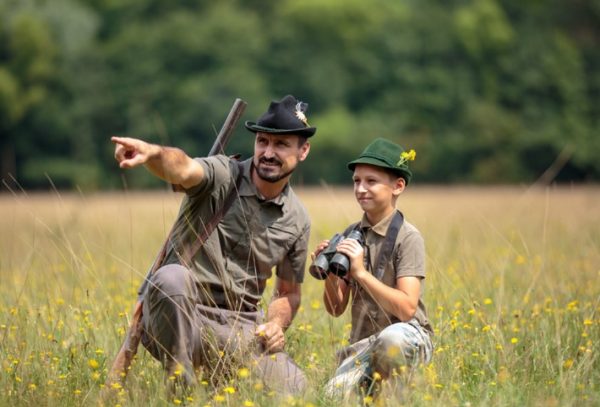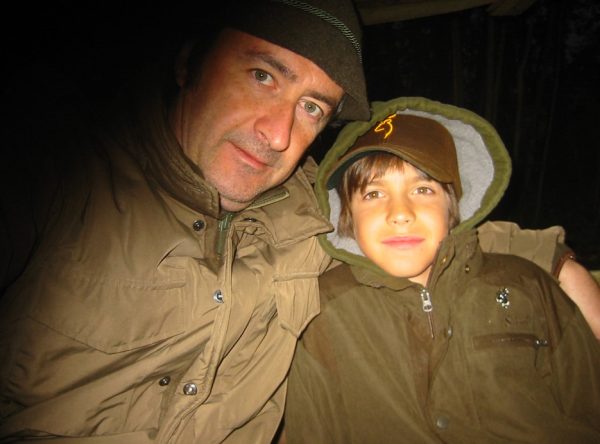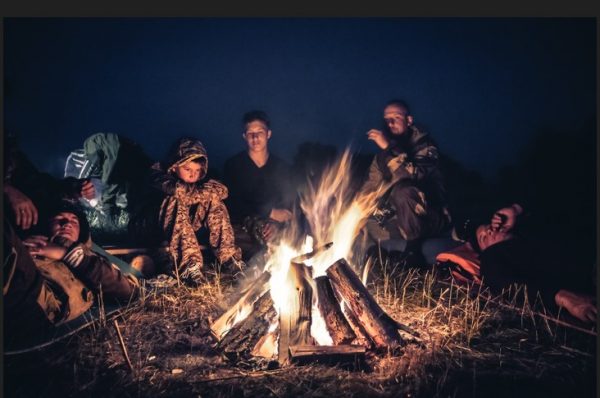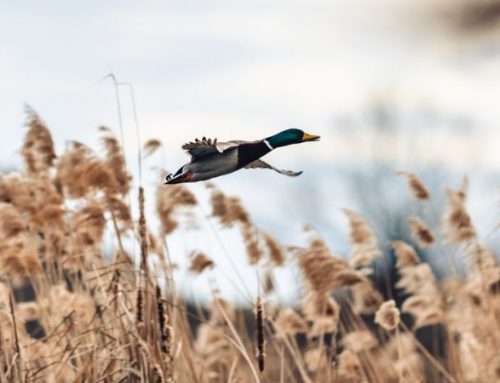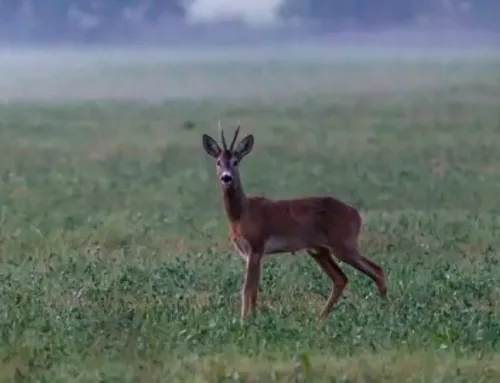In an era where hunting is often under scrutiny and judgment, it is essential to reflect on what we want to pass on to the next generations of enthusiasts.
Hunting is not merely a sport; it is a discipline embedded with profound values: respect for nature, responsibility, ethics, and awareness. Teaching young hunters these principles is far more important than the number of game harvested or performance in the field.
Hunting: A Story of Resilience and Intelligence
Hunting is one of humanity’s oldest activities, playing a fundamental role in our evolution. Before we became predators, we were prey. We lived in a world where survival meant facing daily threats from animals that were faster, stronger, and far more lethal than us. Our rise in the food chain was not due to physical strength but to our resilience, intelligence, and ability to collaborate.
Through hunting, we developed tools, strategies, and a sense of community that allowed us to survive and thrive. It was hunting that taught us the value of respecting nature and the necessity of living in harmony with the environment. Young hunters must understand that even today, hunting is not merely a recreational activity but a connection to our history and a responsibility toward the future.
Ohne Jäger, Keine Wild: The Role of the Hunter in Conservation
An old German saying, “Ohne Jäger, keine Wild” (“Without hunters, there is no game”), reminds us of a fundamental principle: a hunter is not just a predator but a guardian. In modern society, regulated hunting plays a crucial role in wildlife management and ecosystem conservation. Without careful management, animal populations can grow unchecked, causing ecological imbalances, or they may decline due to disease, predation, or habitat loss.
Teaching young hunters this principle means helping them understand that hunting is an active and positive force in nature conservation. Harvesting an animal based on selective culling or limiting the number of animals taken in a day is not just an ethical choice but a demonstration of respect for nature’s balance. A responsible hunter doesn’t think only of the present but looks toward the future, ensuring that future generations can enjoy the same wildlife and resources.
Knowing When to Stop: The Value of Moderation
One of the most challenging but essential principles to teach young hunters is the importance of knowing when to stop, especially when luck favors them and numerous game animals present themselves. Hunting is not a competition for trophies, but rather an activity that demands balance and restraint.
Taking every opportunity without discretion is not just disrespectful—it undermines the deeper meaning of the hunting tradition. Teaching young hunters to stop, even in the midst of an abundant hunting day, means passing on the values of moderation and gratitude. Every animal taken should be considered a gift from nature, not a right or a conquest. This awareness helps maintain the right balance between the enjoyment of the activity and respect for the environment and wildlife.
Hunting Ethics as an Educational Tool
Hunting offers young people a unique opportunity to develop a deep connection with nature. Through hunting, they learn to observe their surroundings, understand natural rhythms, and recognize the delicate balance that sustains life.
Moreover, hunting fosters a sense of community. It is a moment of sharing and mentorship, where young and experienced hunters build relationships based on trust, learning, and shared values. This is why it is crucial for seasoned hunters to lead by example. Young hunters learn more from actions than from words, and it is our duty to show them that hunting is more than a sport—it is a way of life that teaches humility, self-discipline, and respect for all living things.
Hunting as a Social Phenomenon: A Great Equalizer
Hunting is not just an ancient practice and a passionate pursuit of nature; it is also a profoundly social activity. Through the centuries, it has uniquely demonstrated its ability to create authentic bonds among people from all walks of life, breaking down barriers of wealth, status, and background.
A Level Playing Field: Skill and Courage Above All
In the hunting world, who you are in daily life does not matter. Whether you are a businessman, a laborer, a doctor, or a student, hunting puts everyone on the same level. Out in the field, a person’s worth is not measured by their bank account or education but by their skills, courage, and respect for nature.
What counts in hunting is:
- Technical expertise
- Patience in waiting for the right moment
- Precision and self-control
- Compassion and ethical decision-making
These principles build relationships not based on superficial factors but on shared experiences, mutual respect, and genuine trust.
Hunting as an Experience of Sharing
Hunting is rarely an entirely solitary pursuit. Even when alone, a hunter carries the knowledge passed down by those who came before—the wisdom of a mentor, the teachings of a parent, the experiences shared among friends. Every hunting trip is an opportunity to learn, teach, and pass down stories, techniques, and values.
This sense of community grows even stronger in group hunts, where collaboration is key. Organizing a hunt, coordinating with beaters, working with hunting dogs, and respecting the efforts of fellow hunters fosters trust and camaraderie. Around a campfire, after a long day in the field, friendships are forged not just through success, but through the shared challenges and lessons learned together.
Courage and Compassion: The Foundations of True Hunting Friendships
Hunting tests courage—not just physical but moral courage. Being a good hunter means making ethical decisions, such as:
- Refraining from taking a shot when unsure of a clean, ethical kill
- Selecting animals responsibly to benefit the population’s health
- Valuing conservation over personal gain
This responsibility unites true hunters and strengthens their bonds. Compassion, too, elevates hunting from a simple pursuit to a meaningful way of life. Respect for wildlife and nature is the heart of ethical hunting, and it is this shared philosophy that unites those who approach hunting with integrity.
Lifelong Friendships Built on Respect and Trust
Hunting is an emotional journey, not just a physical one. The memories of days spent in nature, the challenges overcome, and the joys shared become unforgettable stories. It is not uncommon for friendships born in the hunting field to last a lifetime, strengthened by shared values, trust, and mutual respect.
Every hunter knows that hunting is not just about harvesting game—it is about experiencing moments that enrich the soul. The friendships formed in this setting often extend beyond the hunt, becoming lifelong pillars of support and companionship.
Hunting as a Tool for Unity
In an increasingly fast-paced and fragmented world, hunting offers a rare space for genuine connection. Far from the distractions of modern life, people rediscover the value of time spent together and the power of shared experiences. This is the true strength of hunting as a social phenomenon: its ability to unite individuals, transforming them into a community that values nature, responsibility, and, most importantly, authenticity in human relationships.
Through hunting, we teach young people not only the art of hunting but also the importance of friendship, respect, and cooperation. By doing so, we ensure that this noble tradition continues to serve as a beacon of values in an ever-changing world.
Ensuring a Sustainable Future
Finally, we must educate young hunters to be stewards of the future. Irresponsible behavior today could endanger the survival of hunting itself. Hunting should not be viewed as a privilege or a selfish pursuit, but rather as a responsibility toward society and the environment.
Passing down hunting ethics means preserving the values that have defined hunting throughout history—as a respectful, noble, and deeply connected way of life. Future hunters will not be judged by the number of animals they harvest, but by their commitment to carrying on this tradition with integrity and respect.

